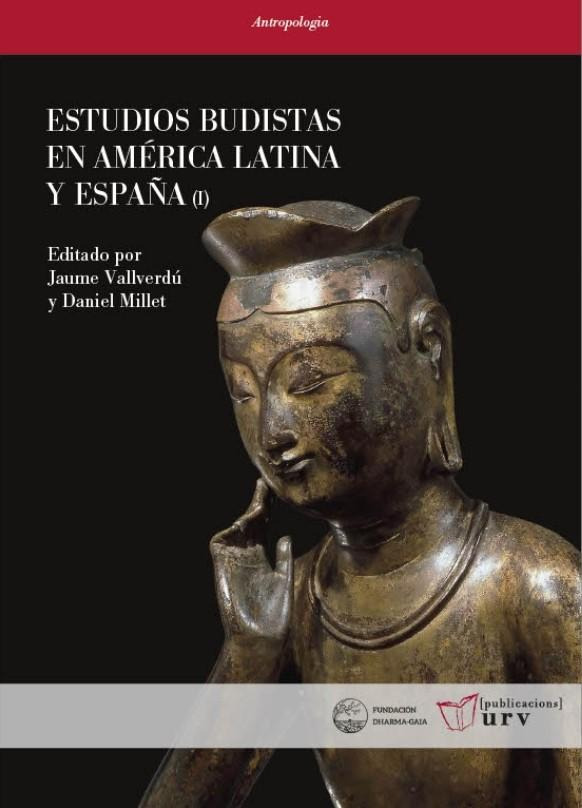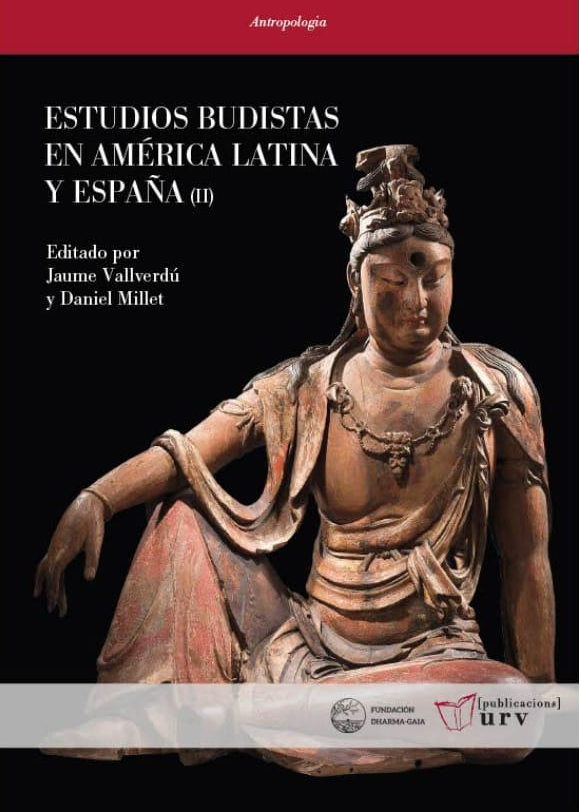Buddhist studies in Latin America and Spain It is the first choral map of Buddhist studies in Spanish. Co-published by the Publications of the Universitat Rovira i Virgili (URV) and the Dharma-Gaia Foundation, this two-volume work brings together academic perspectives and voices from the region to understand how Buddhism is researched, taught and experienced today. Through an interdisciplinary approach that anthropology integrates, sociology, philosophy, Buddhist studies in the strict sense, psychology, art and interreligious dialogue, the publication illuminates recent advances, draws lines of historical continuity and establishes bridges of international collaboration.

Volume I provides a solid overview of the state of this field of study and lays the conceptual and methodological foundations for teachers, students and researchers. Its chapters review and analyze the situation of Buddhist studies in Spain and Latin America, articulating doctrinal analyses —from the Mahāmāyūrī Sūtra to the Kyoto School and ancient Tibetan Buddhism, and of the Middle Way—, together with ethnographies on rituals, commensality and daily practices. In addition, it includes psychological approaches to the “Buddhist mind” and reflections on topics such as ecology and the presence of women in Southern Buddhists. The result is an accessible and rigorous framework for subjects, seminars and research work.

Volume II expands the cartography with philosophical, literary and psychoanalytic crossings, as well as with regional studies that place Buddhism in specific Latin American contexts. It addresses the reception of Zen in “Hagakure”, Theravāda scholasticism in medieval Burma, the motivations for conversion in Soka Gakkai (Cuba) and the theosophical imaginary in Spain. He collects genealogies of Buddhism in Peru and Colombia, examines the encounters between Nishitani's philosophy and Western currents, and stops at Borges as a reader of Buddhism. It also includes contemporary debates on inclusion, gender, Christian Zen and the critical reading of the term “meditation” in psychoanalysis. As a work tool, the volume incorporates systematic bibliographies in Spanish (both from Spain and Latin America) and a directory of authors.
The work is designed to serve a large community. For teaching and research, it offers country panoramas, exhaustive bibliographies and a directory that facilitates the creation of academic networks. For students, it provides clear doctrinal summaries and ethnographic cases useful for papers and theses. For practitioners and the general public, it provides historical and social context, as well as keys to dialogue with contemporary challenges such as ecology, mental health, gender and inclusion. In addition, for journalists and disseminators, it acts as a reliable and verifiable source, with access to institutional references.
The relevance of Buddhist studies in Latin America and Spain is also reflected in their vocation for service. By bringing together bibliographies in Spanish and a directory of authors, it facilitates responsible citation, curricular updating and the articulation of networks between universities, research centers and Buddhist communities. This approach promotes a more equitable circulation of knowledge in the Spanish-speaking environment and helps students and teachers to have accessible and quality materials for the design of courses, seminars and publications.
The co-edition between the Publications of the Universitat Rovira i Virgili (URV) and the Dharma-Gaia Foundation consolidates careful editorial standards, academically validates the content and projects the work carried out in Spain and Latin America internationally. The publication is part of a line of editorial initiatives that strengthen the field through new consultation tools and reference materials.
Both volumes, in digital edition, are available for free download in the “Store” tab of this website.










